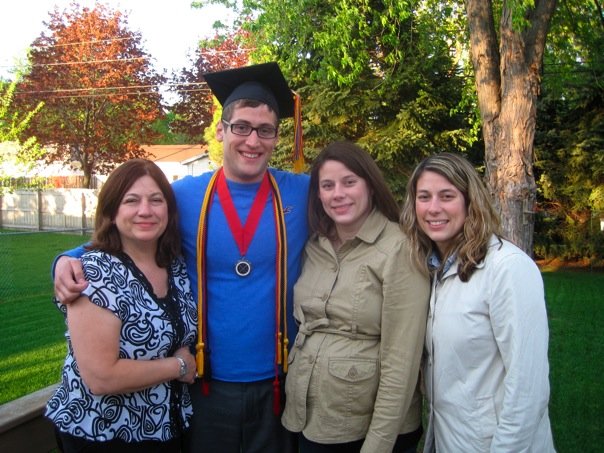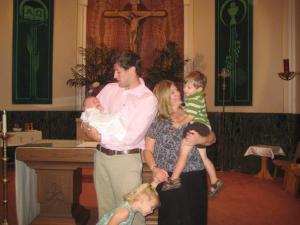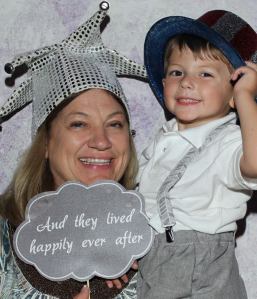Today is my mother's birthday and I'm so lucky that I have a space like Feminism and Religion to talk about not only her but also my journey.
Happy Birthday Mom! I love you!
_____________________________________________________________

The first question I always get asked when I’m in feminist spaces is: “What inspired you to become a feminist?” Although I could go into the various histories revolving around men’s involvement in the early stages of the women’s movement to the similarities between the LGBTQ and women’s movements, my simple answer has always relied on one person: my mother.
I’ll be the first to admit (as well as many other people who will join me in the same chorus) that my mother deserves Sainthood for having put up with all the shenanigans I put [and still continue to put] her through. From running away from our local Catholic church the moment she dropped me off at Sunday School, to swearing like a sailor on leave at a very early age in front of Father Schmidt (who still fondly remembers me and the list I brought in with me to the confessional booth), I taught my mother a few things I do not believe she would had ever thought she'd know during her lifetime.
Although I pride myself on my rejection of religion, the best lessons that I’ve learned ultimately deal with and relate to the thing I thought I swore off long ago. I am a feminist because of a Catholic woman who refused to take no for an answer on Sunday mornings because going to church wasn’t about listening to the Priest but rather listening to and learning from the woman who brought me there. I may have hated sitting in the pews every Sunday but it was there, in that space, where I began to learn what I now love so much. Though some people may refer to this as lived religion, I suggest that it is more relatable when we refer to it as experiencing religion. Lived religion, for me, implies past tense, something we’ve studied or done years, days, or even minutes ago. Experiencing religion is an on-going process, one that happens in the now rather than in the future. My mother left me when two other truths I’ll never forget:
1.) Love is love, whether divine or earthly, love does conquer all.
2.) Trust G-d by trusting in yourself.
2.) Trust G-d by trusting in yourself.

I still remember the day my mother drove away, leaving her baby and only son behind to pursue his dreams of getting a graduate degree in Women’s Studies. I was scared and I didn’t know whether or not I’d come running home to Wisconsin a week later.
As the white P.T. Cruiser we rented pulled out of the graduate housing complex I lived in, her words: “I’m so lucky to have a son like you,” resonated in my head. For the first time, I felt some semblance of divinity watching over me because I trusted my choice and myself. Trusting in myself led me to find G-d in whatever form he or she chooses to greet me in, I just have to be willing to open the door.
I’m still reminded of my mother’s parting words and the feeling I got each time I board a plane to go wherever those dreams and choices take me. However, this time, instead of hearing her say that she is the lucky one, I just chuckle, and smile as the plane lifts off the ground, and realize that it is I who is the lucky one.
I never gave much credence to religion but through my mother, I met G-d, and through her I understood that I’m not a feminist because of the books I’ve read or the degrees I acquire but rather because of the woman I call mom.
